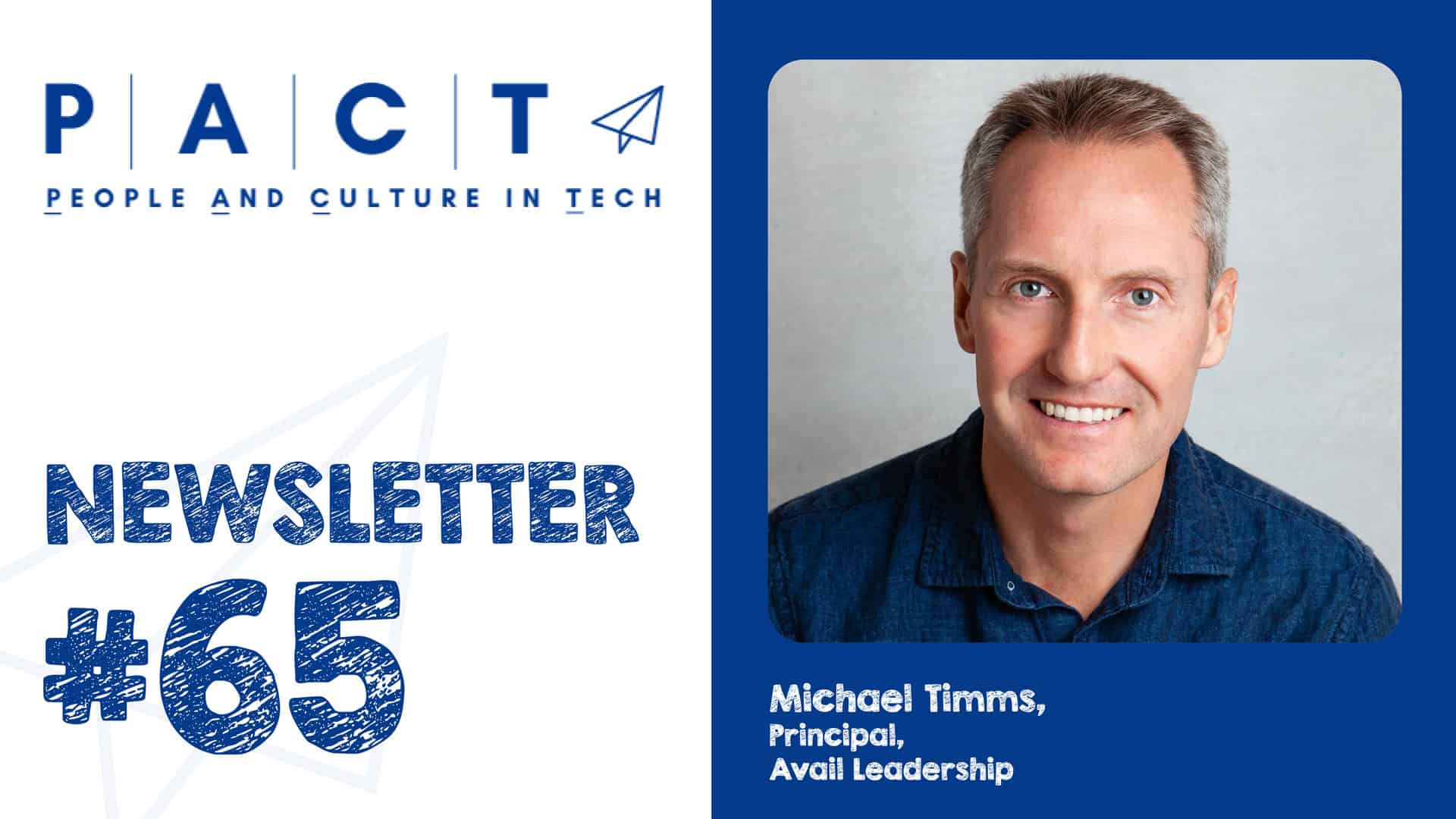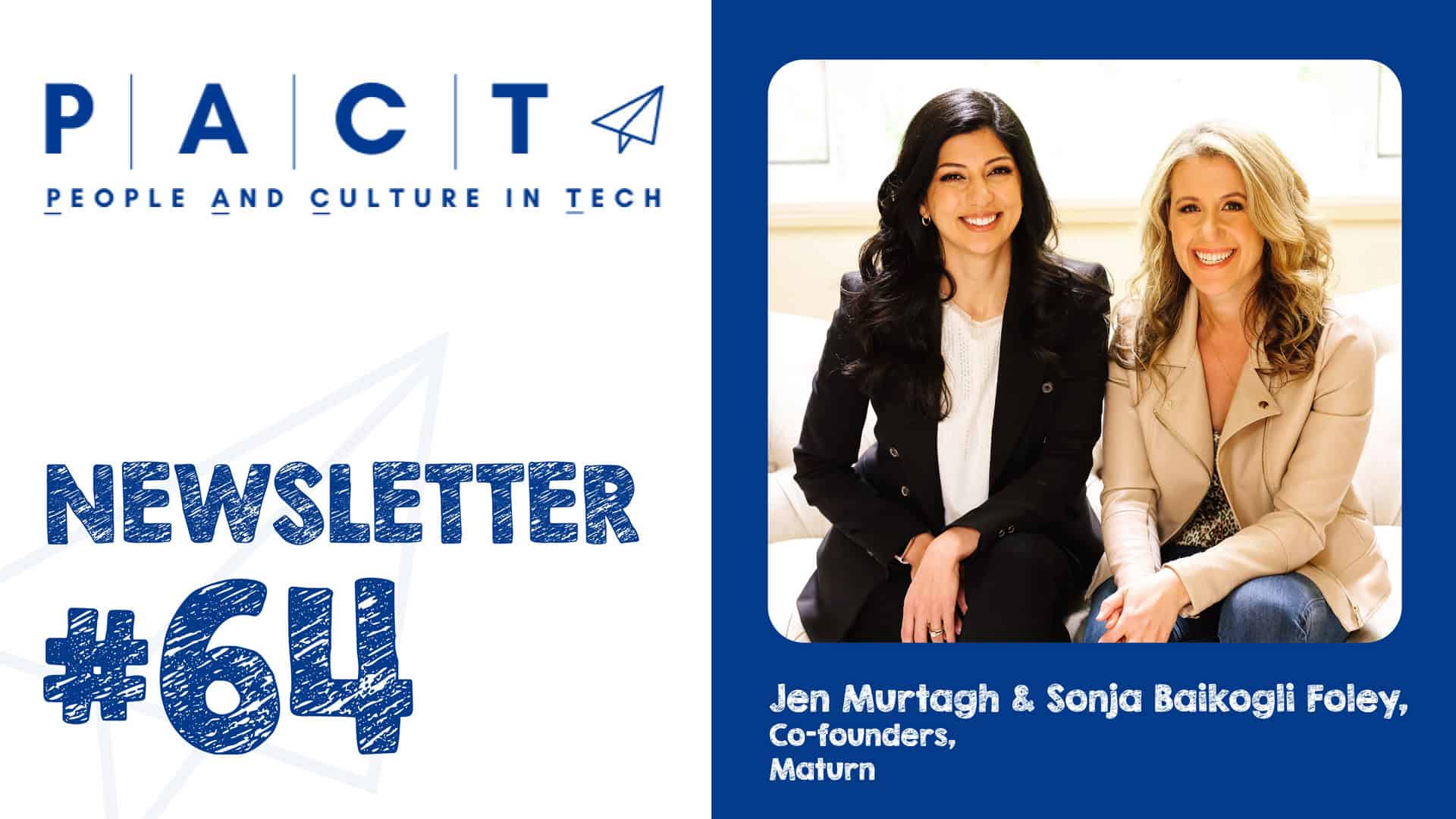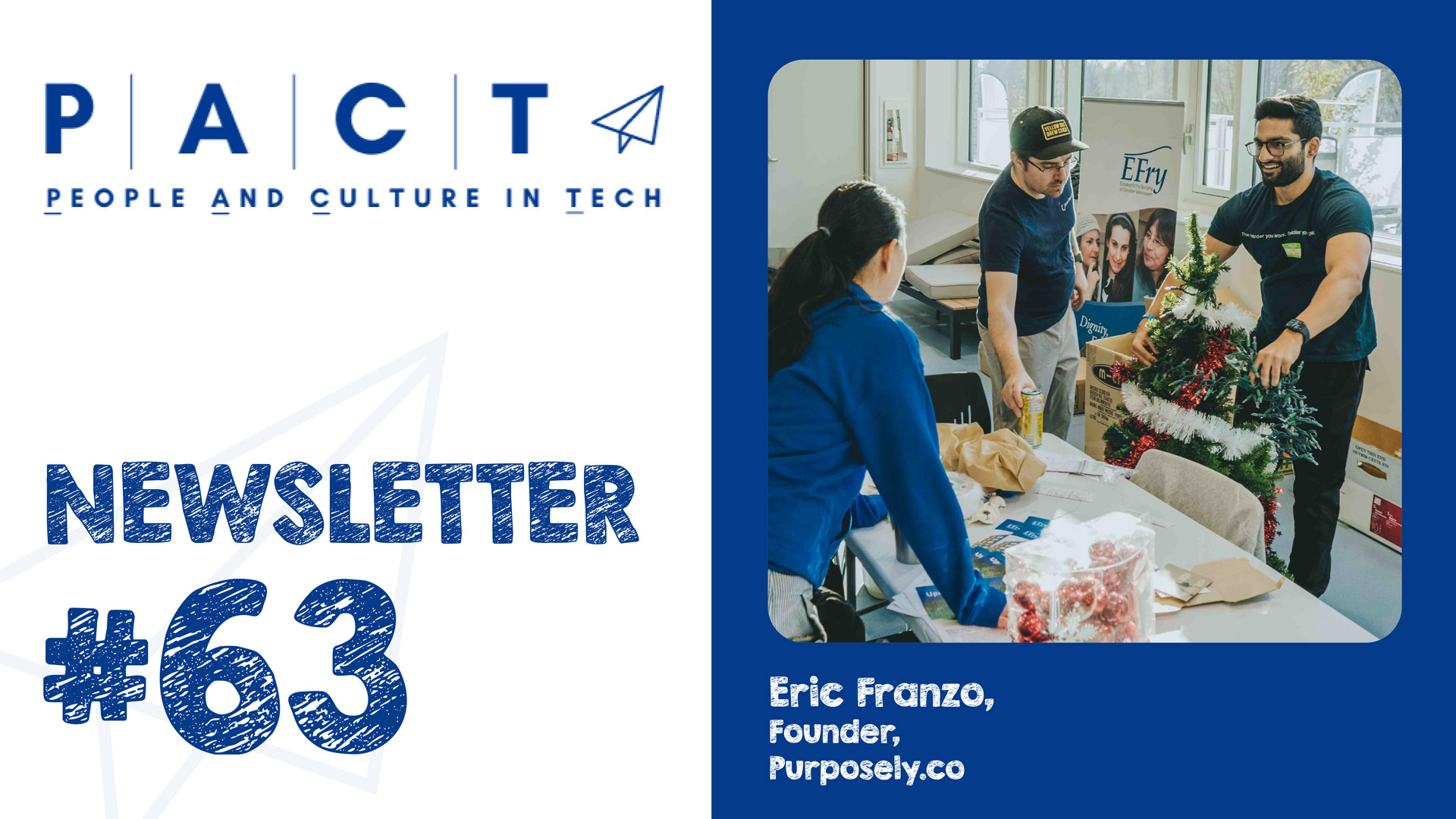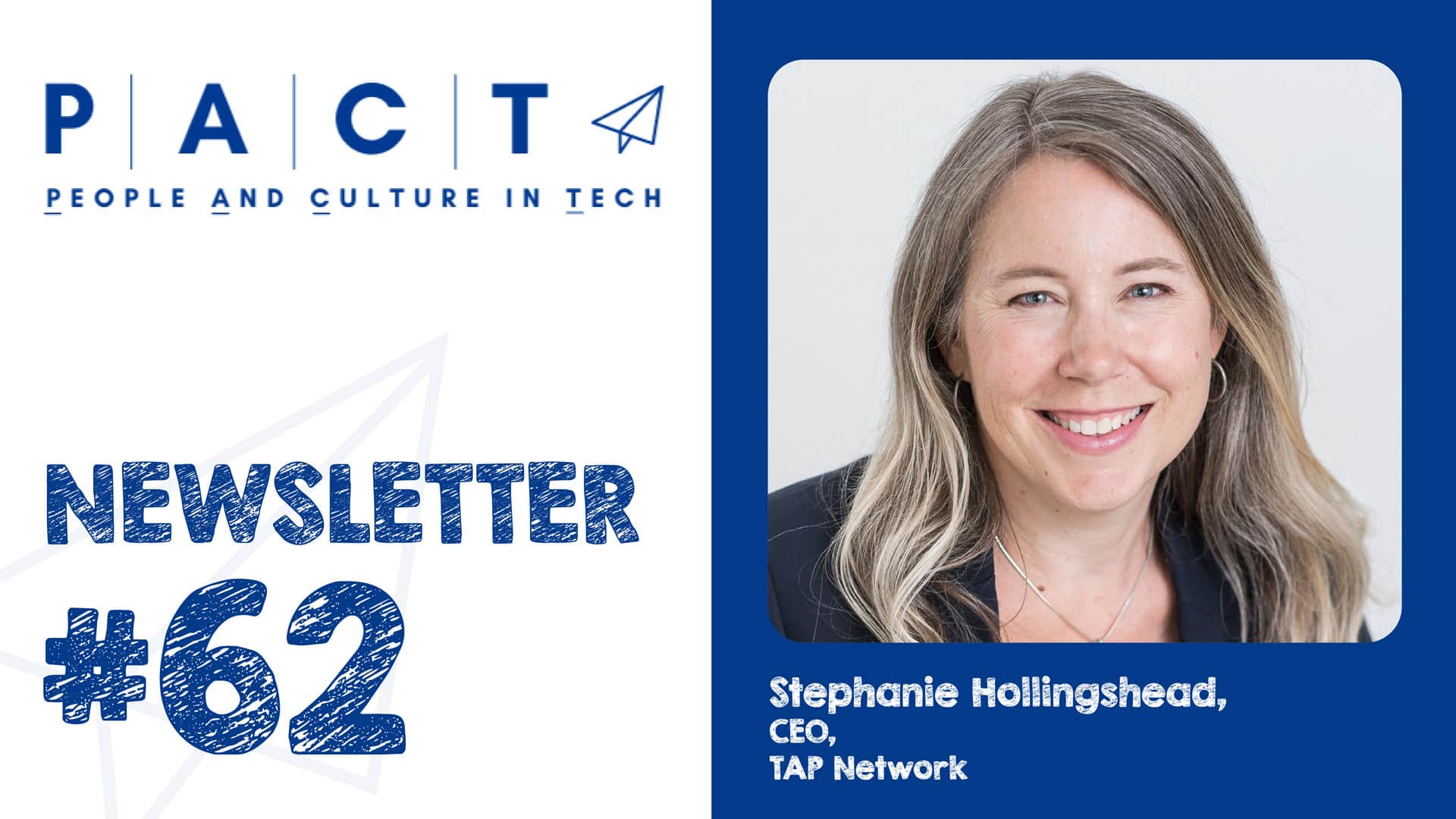Life and Taxes: Jeff Waldman Talks Trends in Total Compensation
Jason McRobbie
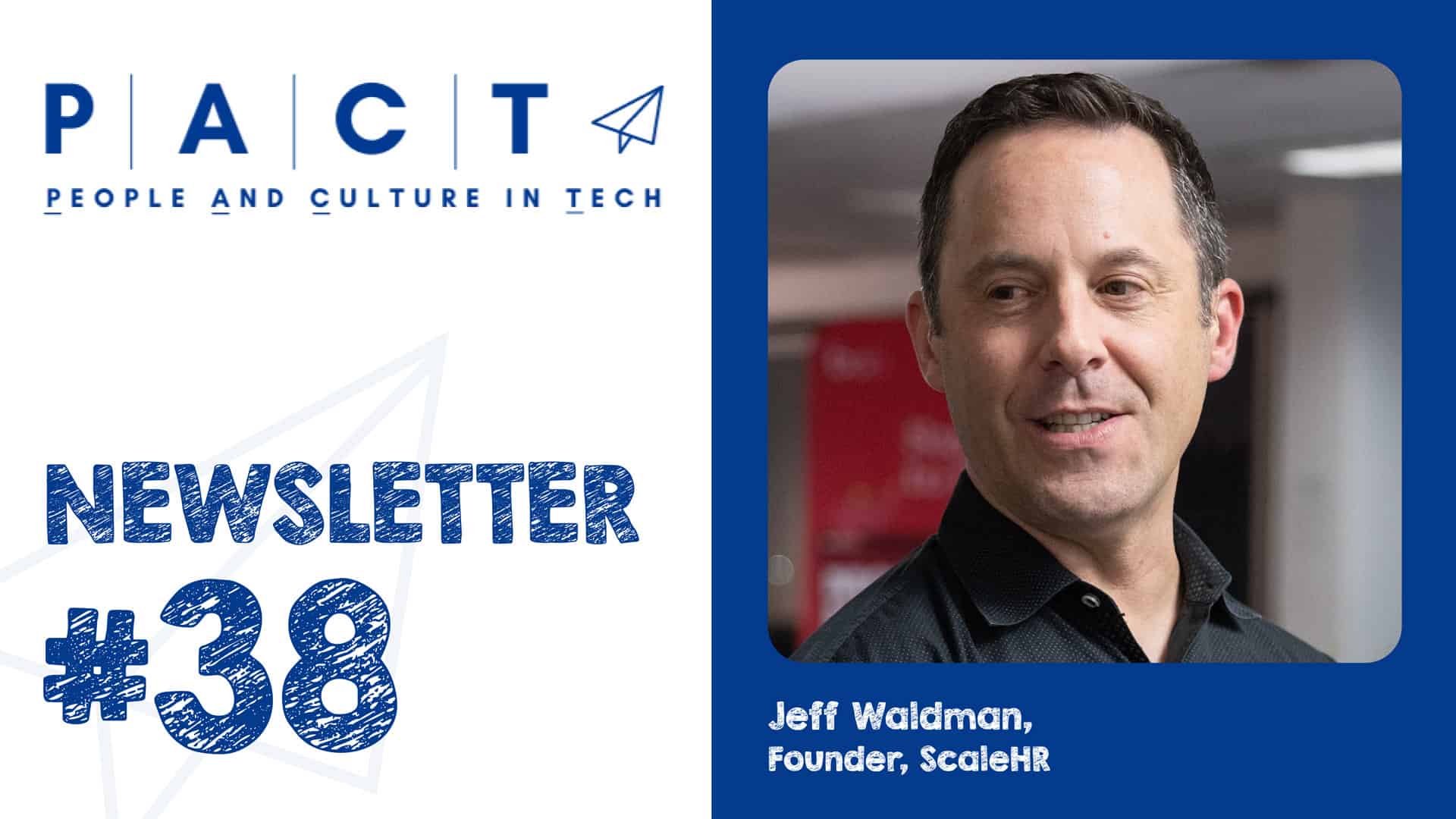
While the definition of total compensation has held steadfast, its focus as a key, strategic priority has exploded for employers of all sizes since the pandemic’s terra forming of the prior workplace. We sit down with Jeff Waldman, founder and CEO of ScaleHR—a company committed to helping small to medium-sized businesses scale their success with people in the priority lane—to discuss total compensation trends in an increasingly competitive market. Interestingly, while there is no one formula, the call for flexibility is greater than ever—as is the opportunity for savvy employers to strategically tailor for sustainable success.
Key Takeaways:
- Since the pandemic, employers have been forced to revisit total compensation in terms that go beyond base salary and bonuses to compete in an increasingly complex, global workplace:
- With burnout and mental health rising to critical levels of concern, leaders are looking at more tailored total compensation wellbeing offerings
- With improved technology anchoring the remote workplace, leaders need to be prepared to deal with global questions around taxation and geo-based pay; and
- Above all else, Canadian employers need to remain attentive and flexible to the changing needs of the five generations in the workplace.
An entrepreneur at heart, Jeff Waldman, founder and CEO of ScaleHR, has been building bridges between evolving technologies and people practices since his launching his career as an HR consultant on a small team of five with the government of Alberta some 20 years ago.
He recalled discovering a PeopleSoft icon on his desktop and thinking, ‘What is this?’
Following a bit more research and a word with his boss about further savvy applications, Jeff’s HR tech career was born, and he has been playing his good fortune forward for the similarly-minded since—a high value on people and user experience being the unifying factor for ScaleHR’s client list.
Today, Jeff and team serve two primary audiences that often overlap in both ethos and industry: those looking to scale their growing SMB success and HR tech companies. A very human focus on total compensation predominates in both client camps.
“I now classify time periods between pre-pandemic and everything since the pandemic started because things just changed overnight. I think that’s really important. If you look at the pre-pandemic workplace, you had started to see GenZs—18-25-year-olds—coming into the workforce, giving us five generations now in the workplace,” said Jeff. “They want different things. What Generation Y really cared about, and the money still mattered, was socially responsible organizations that cared about them, where employee engagement was big along with all those things that make that work/life thing great. But now you have GenZ and they want to get paid. They’re no longer satisfied with a company that makes claims to a great culture, but is paying a paltry salary.”
Moreover, Jeff noted, he stands as evidence of GenY’s shifting needs now that raising families has entered the equation. These days, everyone cares about the money, but giving that money meaning is key to total compensation.
That said, with multiple external depressors—ranging from war to inflation to social issues—and a post-pandemic world of global, remote work opportunities, the challenge has never been greater for Canadian employers to create total compensation packages that are not only alluring, but strategic and sustainable.
“Now even your dollar is worth less than before. You’ve got housing inflation, food inflation, energy inflation—it’s going crazy. So, the idea of a total compensation mix is no longer just about base salary, bonuses, stock options, equity, and commission. It’s also about a whole lot of other stuff that essentially boils down to employee well-being,” said Jeff.
“We have seen burnout on the rise on the last three years. When that burnout is caused by work, it doesn’t matter what you do elsewhere as an employer. You can pay people more. You can give them more perks. None of that matters if your people are burnt out. Why? Because not only are they not able to be as productive, it affects them financially, mental health-wise, emotionally, physically—everything goes down.”
“There is a lot of popularity right now around wellbeing/wellness services, so many companies have provided employees with an account that they can access for anything from psychotherapy to fitness to quitting smoking. That’s been around for a long time. But we also have companies like Recharge based in Toronto that offer a tailored, bespoke, customer hyper-focused approach for each employee. So now you’re seeing companies really taking an active interest in people’s health.”
With wellbeing receiving well-deserved attention, Jeff noted, “HR is now being thrust into the forefront and that is the new workplace currency. If you can work wellbeing into everything you do, then you’re trending in the right direction in terms of total compensation, but you still have to pay people properly. If people perceive to be paid fairly, then the rest of that stuff around supporting people with their financial, mental, physical and community health—all those things—is beneficial.”
As a further assist for companies seeking a healthier approach to employee care, ScaleHR has also produced a guide showcasing "How HR Can Integrate Well-Being Into Total Rewards Strategy".
The true key to total compensation, in Jeff’s opinion, is less about the money spent and more about the why and how. That said, he makes it clear that trying to compete on money alone is not only unaffordable, but foolish.
“Most of my clients are under 200 employees and when a lot originally have this vision of being Netflix or Amazon. I have to say, ‘Stop. First of all, these companies are way further ahead in their journey, while you’re still scratching and clawing. They have lots of money and can do these things. You don’t and can’t, so you’re going to have to do things a little differently,” said Jeff.
“And if you are hiring people who only care about top dollar and what Amazon is paying, then that is not your target audience. I’ve told many candidates; look we cannot compete with you on that. It comes down to being very transparent. This is what we offer that fits with our core values—and if we don’t align, well, Amazon is always hiring.”
His lesson for aligning total compensation for maximum effect is simple—get the right people.
“You want people who are attracted by what you do. They care about building versus maintaining. They care about having broader impact versus a narrow scope. So you’re looking for those people whose values fit with where you are now as an organization,” said Jeff.
As for creating that differentiation and allure within the total compensation package, Jeff is adamant about the alignment with company culture for good reason. In short, every company is different.
“What I always say to each organization is ‘what might work for them may not work for you and vice versa,’ which is why I always hang my hat on core values and asking, ‘what are you trying to do?’” said Jeff.
He relayed the story of a friend’s recruitment company where personal time off was highly valued—and so added the four-day work week to their employment offer. At first skeptical about its effectiveness and worried it might only worsen overwork and burnout; he attributes its success to the company’s clear intent.
“They couldn’t just take five days of work and shove it into four. But they did it the right way and that is with the right intention and attention to dealing with the overload of work. And so the four-day work week works—for them,” said Jeff.
He shared the story of another company in Toronto that focused on offering staff flexible time off, which has been around for a while, but found even greater traction when they added a professional development stipend—which tied far more directly to one of their core values, personal growth.
“They put their money where their mouth is and it was only about $1,000 per year, but that money was going to development, which is what the employees had been asking for,” said Jeff. “It’s all part of total compensation but goes so much further than if you just give everyone a $1,000 raise because it doesn’t get eaten up by taxes and that benefit stretches throughout the year.”
Next, he recalled a company with a retention issue and the rarest of things—money to burn and plenty to learn about tailoring total compensation to maximum impact.
“They were a company with 100 hundred employees here in Toronto with a parent company in LA. Each year, the president would go down, bring back a $250,000 cheque and say, ‘Okay, this is the Christmas bonus,’ and everyone received $2,500.’”
Asked how long he had been doing this for, Jeff discovered it had been at least five years or so. Moreover, the firmest ROI metric applied was word of mouth—some liked it, others didn’t since the newbies and slackers were getting the same ‘bonus’ as top performers.
“I asked how could even call it a performance bonus if he was giving everyone the same thing?” said Jeff, while proposing a simple solution better targeting the desired outcome—split that money between the top 25 people instead.
Further expanding their total comp vistas, he recommended the same company then give those top 25 performers the option to take the money as cash or rolling it into an RRSP, which the company could match.
“They had no idea they could do that, so it is just another great example of a company that has been doing it, but doing it wrong—and just how quickly some of these things can be given an about-face when they are realigned with what your company is actually trying to achieve,” said Jeff, noting retention is no longer a hot button, issues of pay equity were also addressed and productivity is up. “In the end, it worked for everyone and all it took was a 30-minute conversation to breakthrough a five-year deadlock in thinking.”
With the mentioned recurring focus on burnout and wellness across industries, the same company has waived the three-month probationary period for accessing health benefits.
Other organizations are offering stipends for home offices, which has the added benefit of shifting dollars from taxable to non-taxable Jeff points out, “The idea is not the tactic on its own. The key is knowing what you are trying to do from an output point of view. Focus on what you care about and communicate that to your people and on your career page. I go to four sites looking for a job and they all make the same claims around culture. You have to prove it.”
Jeff stressed the importance of focus and follow through alike, but flexibility above all.
However, what this newfound flexibility and anytime/anywhere aspect of work has also given rise to is another pair of complexities in the total compensation realm—taxation and geo-based pay.
“If you have people who can work anywhere around the world that breeds a different set of problems around how you pay people. Do I handle paying tax or does the employee deal with that—and is that paying Canadian market rates or Costa Rican? I’m neither an accountant nor an lawyer, but these are increasingly common questions in comp,” said Jeff, mentioning that some employers are using an Employee of Record (EOR) in this regard: “An EOR does it for you. You still employee the person, but you are doing it though a third party and they take control of their pay, employment status, benefits. That’s really become a hot topic for me, and we have partner for that called OysterHR.com who serve 180 countries around the world. So that’s one way to do it.”
Aside from taxation, the other issue in a global workplace has obviously been market competitiveness from a compensation POV. “There are two ways to go about this. The one approach, which I see with many companies, is that location doesn’t matter. You can be a developer in Vancouver, Vietnam or wherever and you are going to be paid within this range because they are paying for skill and value,” said Jeff. “The other way is to do market geographies. That is how I have been taught and there’s good reason to do it because it lets you take into account cost of living adjustments and different circumstances. Personally, I believe in that.”
As for the tools to help start up leaders tune their total compensation, Jeff gave thumbs up to both Barley and HiBob as core assists to help companies better plan, organize and align their choices with where they want to go. That said, as a lover of data himself: “If you have the data and the capabilities then there is nothing wrong with using an old-school spreadsheet if you know how to use that data in a smart way.”
For tech companies in particular, Jeff also recommended a visit to level.fyi—which is geared towards to helping people compare career levels across tech companies—but stands by the true value of ongoing conversation and feedback from peer networks above all.
In Jeff’s books, total compensation is no longer just a competitive bid, but a direct reflection of a company’s values and DNA—one whose value is only clarified when it is aligned and crafted as a relatable story to attract and re
BACK





